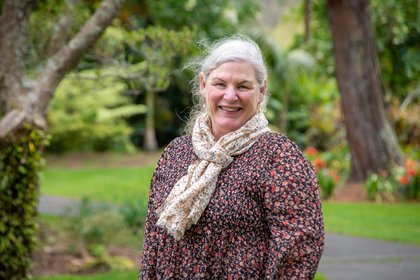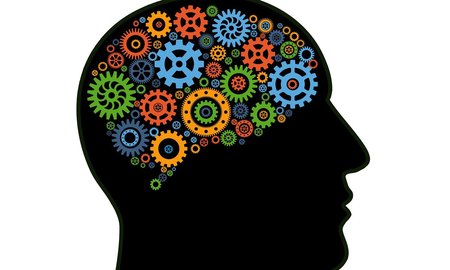
Dr Kerri-Ann Hughes
The theme for World Menopause Day today is cognition and mood, with the focus being on understanding brain fog and memory difficulties in menopause. These issues are a well-documented part of peri, meno and post menopause. However, there is still a misconception around menopause and how it is managed, and it can sometimes be viewed purely as a mental health concern.
The term menopause is often misused due to the lack of vocabulary around the subject. Actual menopause is defined as the point at which you have not had a period for 12 months. Preceding this point in time women experience peri menopause, and following this point in time is post menopause. The entirety of this period is referred to as the climacteric phase.
Common signs that women may be starting to enter the climacteric phase is having unusually heavy periods, or when their periods become irregular. Other signs include hot flushes, night sweats, brain fog, increased anxiety and mood swings. Accompanying this may be poor sleep patterns.
When women go through the climacteric phase, they are experiencing a natural transition, not an issue that needs to be fixed. That is not to say that women may not need help managing this phase, as the signs and symptoms associated with the climacteric phase differ for all women and can range from very minimal through to severe, depending on hormone levels.
Often when a woman presents to their physician with hot flushes, anxiety and sleeplessness they are prescribed selective serotonin reuptake inhibitors (SSRIs) or medications which are commonly prescribed as antidepressants. Sometimes these treatments work and sometimes they don’t. Treating these climacteric phase symptoms as a mental health issue can be a kneejerk reaction, as it would not be the usual first course of action if someone was experiencing these symptoms.
Why is menopause considered a mental health issue when it is actually a hormonal issue and needs to be linked with the specialties of endocrine and female sexual health? Of course mental health is important when talking about menopause, but it is just one aspect that should be taken into consideration in a holistic approach to a woman’s health.
Putting menopause and its associated cognition and mood changes into the mental health basket is like parking the ambulance at the bottom of the cliff. This is because historically women’s bodies have always been seen as ‘the other’ or ‘the inferior sex’, and anything to do with menses in the Western world has historically been considered taboo.
Today, women are still fighting to have clinical trials using female participants to understand what happens to female bodies, with ethics committees consistently being told that women are excluded as participants because the changing female hormones impact on the study. Although it is slowly changing it is taking a long time for women to be recognised as needing solutions that are women centred. It is no wonder that menopause and the climacteric phase is so poorly understood, not only by physicians but also by women themselves.
While medication can be an important part of helping women through the climacteric phase, it does not need to be the first avenue. Providing interventions that promote understanding of what is happening and practical solutions are also necessary – for example looking at nutrition and exploring whether there are essential nutrients missing from a women’s diet.
The international research I am involved with, which looks at nurses’ experience with menopause, is developing a digital intervention that will help women with observing, monitoring and finding evidence-based advice and strategies so they can take control back during this time.
Our research found that women experiencing menopause want time to breathe when they are experiencing a hot flush, a space to gain control back and for their voice to be heard. They want easy to understand, evidence-based information on how to manage this time in their lives.
Health professionals talk about ‘the worried well’ and because health is still predominantly focused on a visual biomedical model and finding a treatment or a cure, women experiencing menopause do not fit this model and may end up being regarded as one of ‘the worried well’.
As a result of the symptoms of menopause being wide, varied and often not visible, women can feel dismissed. For example, hot flushes do not create an increase in recorded body temperature as they are the result of a sympathetic nervous system response and hormones, so there is no visible biomedical marker.
As something that will affect half of the world’s population, it is time to ensure this natural transition is understood and managed appropriately.
Dr Kerri-Ann Hughes is a Senior Lecturer from Te Kunenga ki Pūrehuroa Massey University’s School of Nursing. Dr Hughes is part of an international research team looking at nurses’ experience of menopause.
More news
Opinion: Time to reconnect – slow and steady does it
Dr Kirsty Ross reminds us to take the time to reconnect with the things that are important to us this Mental Health Awareness Week.

Massey graduates win Dietitians NZ awards
Two Massey Nutrition and Dietetics graduates received awards at the recent Dietitians New Zealand conference in Christchurch.

Supporting neurodiverse students
Academics in the College of Humanities and Social Sciences have been working to identify the challenges neurodiverse students may encounter, and ways to support them during their time at university.

Opinion: The complexities of mental health and the role of nurses
Each year around one in five New Zealanders experiences mental illness or significant mental distress, and between 50 and 80 per cent of New Zealanders will experience mental distress or addiction challenges, or both, in their lifetime. The role that mental health nurses play in caring for these people should not be overlooked.
